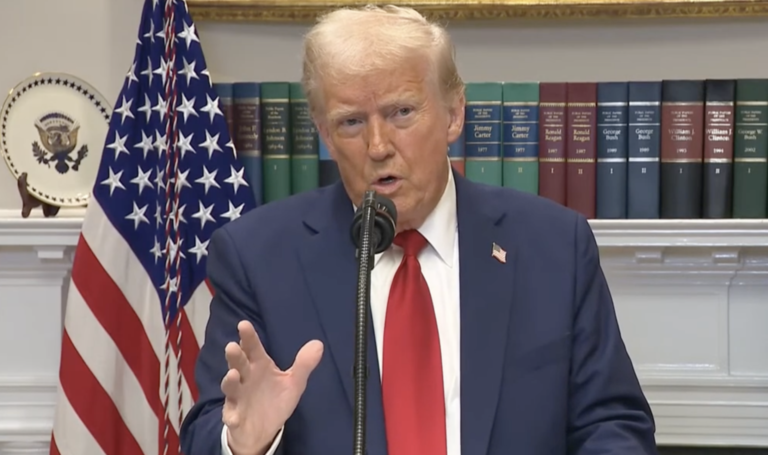(The Center Square) – Markets remained on edge Monday over concerns about President Donald Trump’s tariff plans and his criticism of Federal Reserve Chairman Jerome Powell.
The Dow industrials dropped almost 1,000 points or 2.4%. The Nasdaq posted the biggest loss, down 2.5% for the day. The S&P 500 fell 2.3%.
The losses came as Trump again called on Powell to cut interest rates, something Powell said has previously said wasn’t warranted by economic conditions given the Fed’s dual mandate for maximum employment and stable prices.
Trump on Monday said Powell must take action to boost the economy as the president looks to reshape global trade with tariffs on imports.
“There can be a SLOWING of the economy unless Mr. Too Late, a major loser, lowers interest rates, NOW,” Trump posted on Truth Social. “Powell has always been “To Late,” except when it came to the Election period when he lowered in order to help Sleepy Joe Biden, later Kamala, get elected. How did that work out?”
Last week, Powell said that Trump’s quickly evolving tariff policies could put the central bank in a difficult position.
“The level of the tariff increases announced so far is significantly larger than anticipated,” Powell said at the Economic Club of Chicago. “The same is likely to be true of the economic effects, which will include higher inflation and slower growth.”
Trump has repeatedly called on the Federal Reserve to lower interest rates, but the president has limited authority over the independent agency.
Congress structured the Federal Reserve to avoid political pressure. Members of the Board of Governors are appointed for staggered 14-year terms, and the Board Chair is appointed for a four-year term.
Stocks slumped on April 2, when Trump announced his “Liberation Day” tariffs. The markets rallied on April 9 when Trump announced a 90-day pause on his higher tariffs, but kept a 10% baseline tariff on imports in place along with much higher 145% rate on imports from China. Trump also put a 25% tariff on imported passenger vehicles and auto parts.
Trump has promised tariffs will make the U.S. wealthy, bring back manufacturing jobs lost to lower-wage countries in decades past and shift the tax burden away from U.S. families.
A tariff is a tax on imported goods. The importer pays the tax and can either absorb the loss or pass the tax on to consumers in the form of higher prices.
Critics argue the tariffs will hurt the economy and the nation’s trading relationships abroad and that costs will be passed on to American consumers. Trump and his backers have said tariffs would cause some temporary pain but that they would also lead to a new wave of domestic manufacturing and raise federal revenue.

